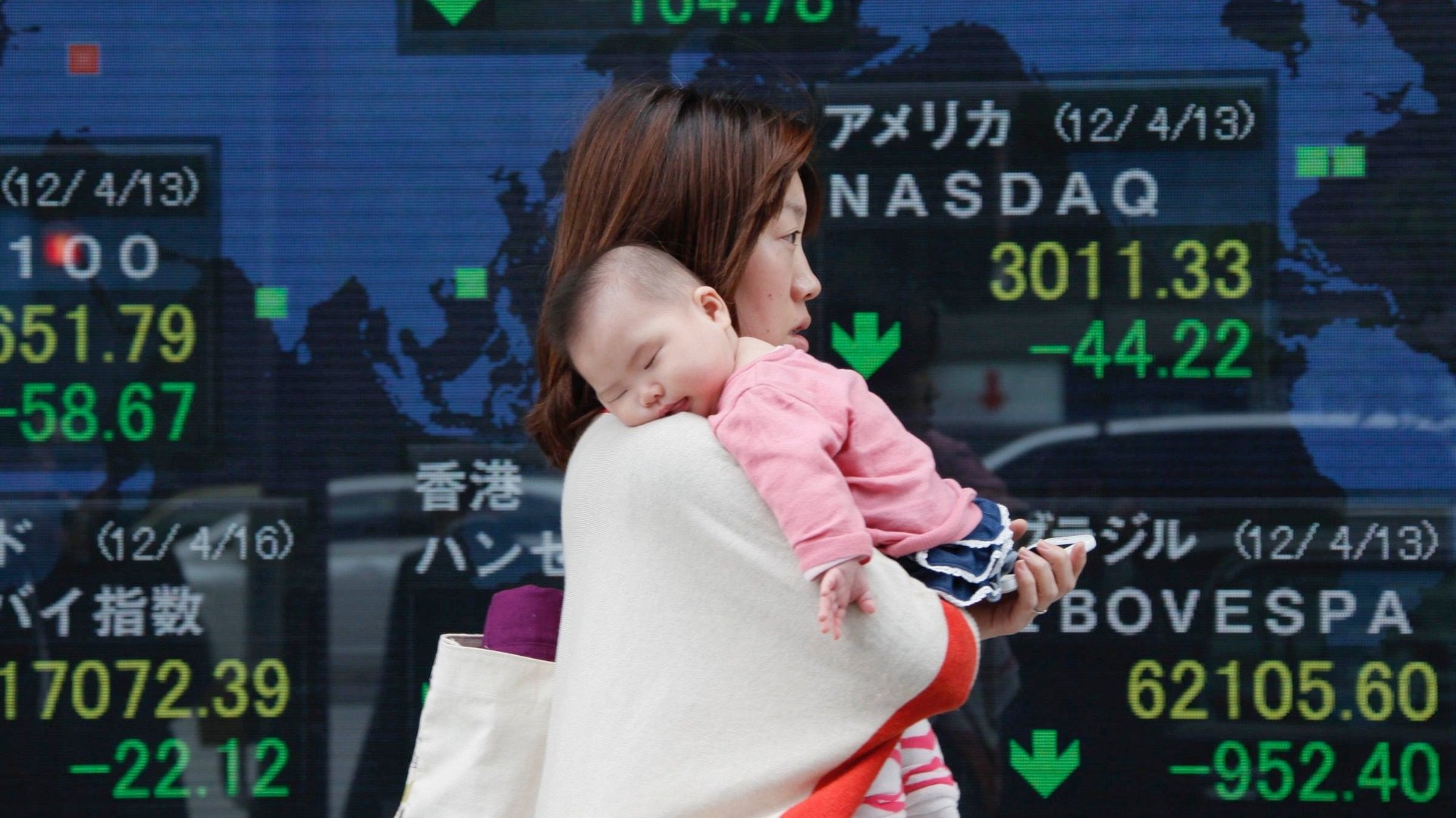Japanese women are speaking out against “maternity harassment”
Expecting mothers in Japan face tremendous social pressure to choose between having either a child or a career, and sometimes get assigned work that’s difficult or dangerous for a pregnant women—a phenomenon known as matahara, or “maternity harassment.”


Expecting mothers in Japan face tremendous social pressure to choose between having either a child or a career, and sometimes get assigned work that’s difficult or dangerous for a pregnant women—a phenomenon known as matahara, or “maternity harassment.”
This week, a group of Japanese women spoke out against such harassment at a June 24 news conference organized by Tokyo-based non-profit MataharaNet. One of them, a worker at a daycare facility, said that after she became pregnant, her boss ignored her requests to reduce tasks involving heavy lifting. “I found the company’s treatment equivalent to encouraging miscarriage,” she said.
Another woman speaking at this week’s news conference—a clinical psychologist—told of her work conditions worsening after she returned from maternity leave. Her boss asked her to not join off-site activities—important for advancement in her field—that she’d previously performed routinely, such as attending conferences and visiting other hospitals.
When she complained, she received a note in her paycheck that read “focus more on your child,” and was told that she was being “selfish” and a “bad mother.” When she did participate in off-site activities, her employer, without her consent, counted it as absence and reduced her pay.
Pregnant women in Japan often get accused of dragging down the team. ”Once they tell their boss and colleagues about their pregnancy, some are pressured to resign since they will be a ‘burden’ to their colleagues, who will have to take on additional work during her maternity or childcare leave, and when her child gets sick,” said Nana Oishi, a professor at the University of Melbourne, in an interview with Bloomberg.
It is said that one out of four women are subject to maternity harassment in Japan and about 60% of working women resign after the birth of their first child.
Such attitudes, though persistent, must change in order for Japan to address a looming worker shortage. Its number of working-age people could fall by almost half by 2060. Getting women more involved in the workforce would help address this demographic challenge.
To that end, prime minister Shinzo Abe called for women to be in 30% of leadership roles—in all sectors—by 2020. Narrowing the gap between men and women in the workforce is a large focus of his economic revival plan.
Despite Abe’s target, the lower house of parliament in Japan is still more than 90% male.